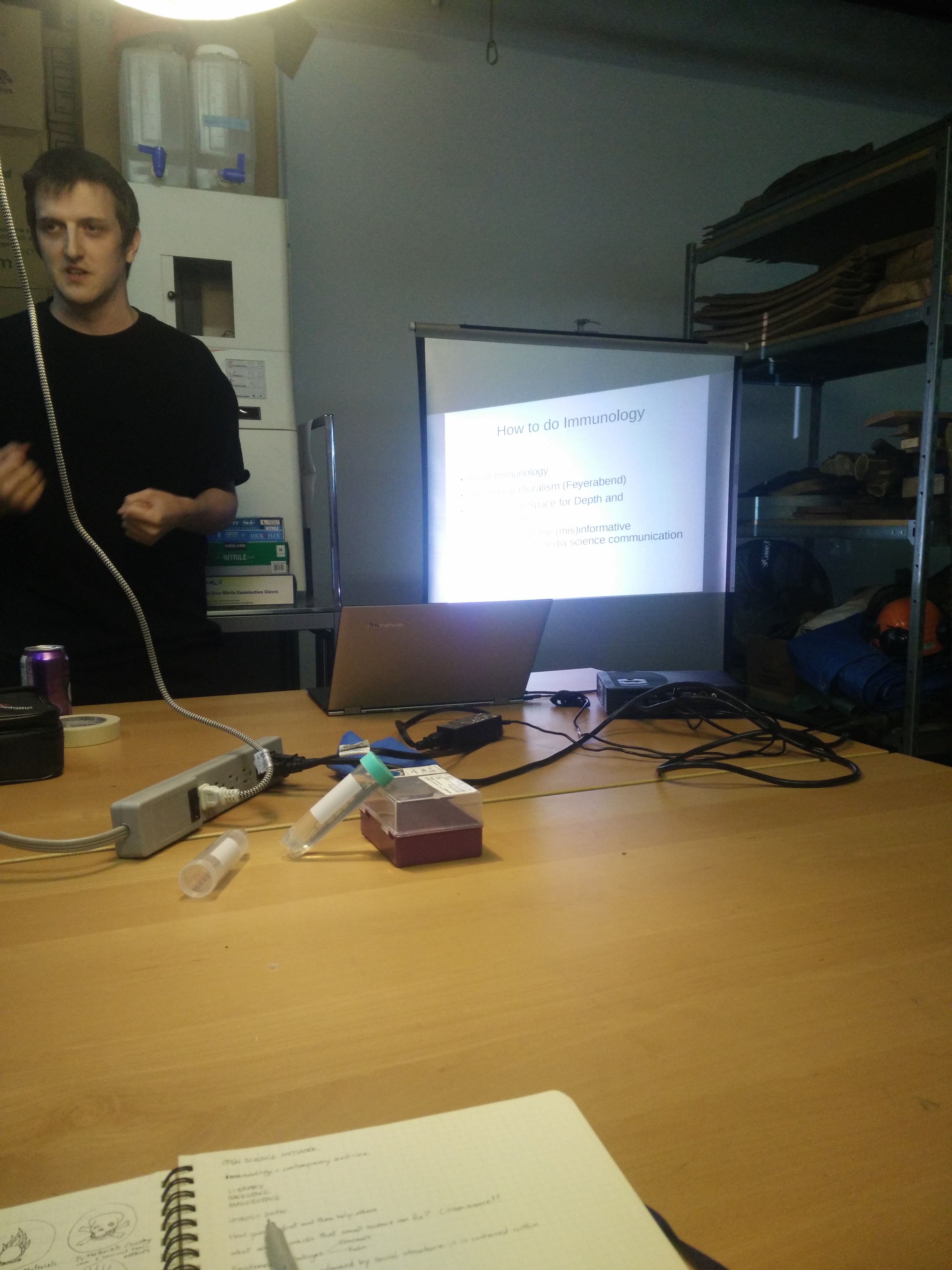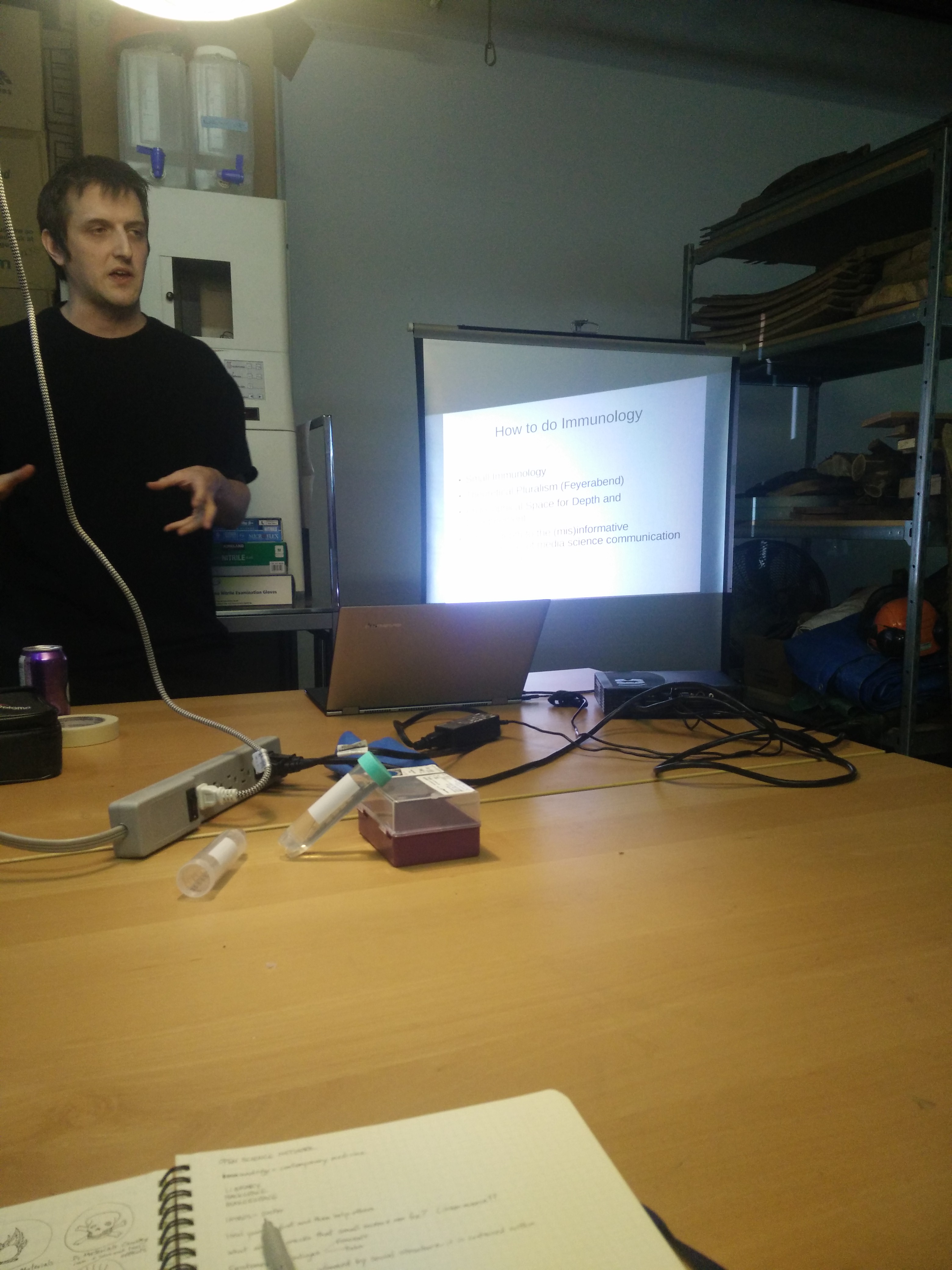Immunology and Contemporary Medicine
What sort of science do we need today? What sort of medical research? Taking a historical and philosophical view, this talk will discuss recent concerns in medicine and th?eir relation to immunology. Ideas will be presented followed by an roundtable discussion, including possibilities for future events and talks.
Situated between the juncture of how science is and could be done, a history of exceptionality will graph out a story of thinkers that give past stories of future difference. Peter Medawar and Alfred Tauber exemplify the juncture of laboratory thought and general philosophy, Miroslav Holub the space between poetics and experiment, while Donna Haraway presents a macroscopic view of the shift in biological frameworks that highlights the immunological paradigm. In each case, science practice is resituated in relation to cultural thought, giving it increased freedom to return to more radical questions, questions that are more in sync with general concerns (where thinkers like Baudrillard and Derrida present something different, a fetishizing of "science" terms in translation that require demystification before being re-related to their original referents).
Theoretical immunologists such as Polly Matzinger, Frank Burnet and Niels Jerne illustrate the importance of applied theory in relation to innovative practice. Proposing experiments within unprecedented frameworks permits the becoming of unforeseen epistemes. The research of Paul Ehrlich (horror autotoxicus), Karl Landsteiner (haptens, anaphylaxis) and others (ie. Pirquet & Schick on allergy/hypersensitivity) will be presented as instances of original research paths that, while often forming minor niches relative to more popular contemporary concerns, over time proved to be more germane to the paradigms that followed. Minor research as a mode of creating instances that, however untimely, follow ("are translated") to future possibilities of more general application.
While histories in themselves, these instances also point towards an inventive mode of past reflection, where each historical moment leads to an alternative present. Moreover these are examples whose personal scale, along with other medical, alimentary and environmental concerns (and unlike, say, larger-scale physics or civic projects), translate directly to the radical possibilities of community lab space, taking their minor qualities to a more open-ended system of what direction research can travel in.
What is proposed is a knowledge commons that reinvents culture and history based on specific needs of situated users: a technoscientific library permitting personal learning and action on a democratized scale.

